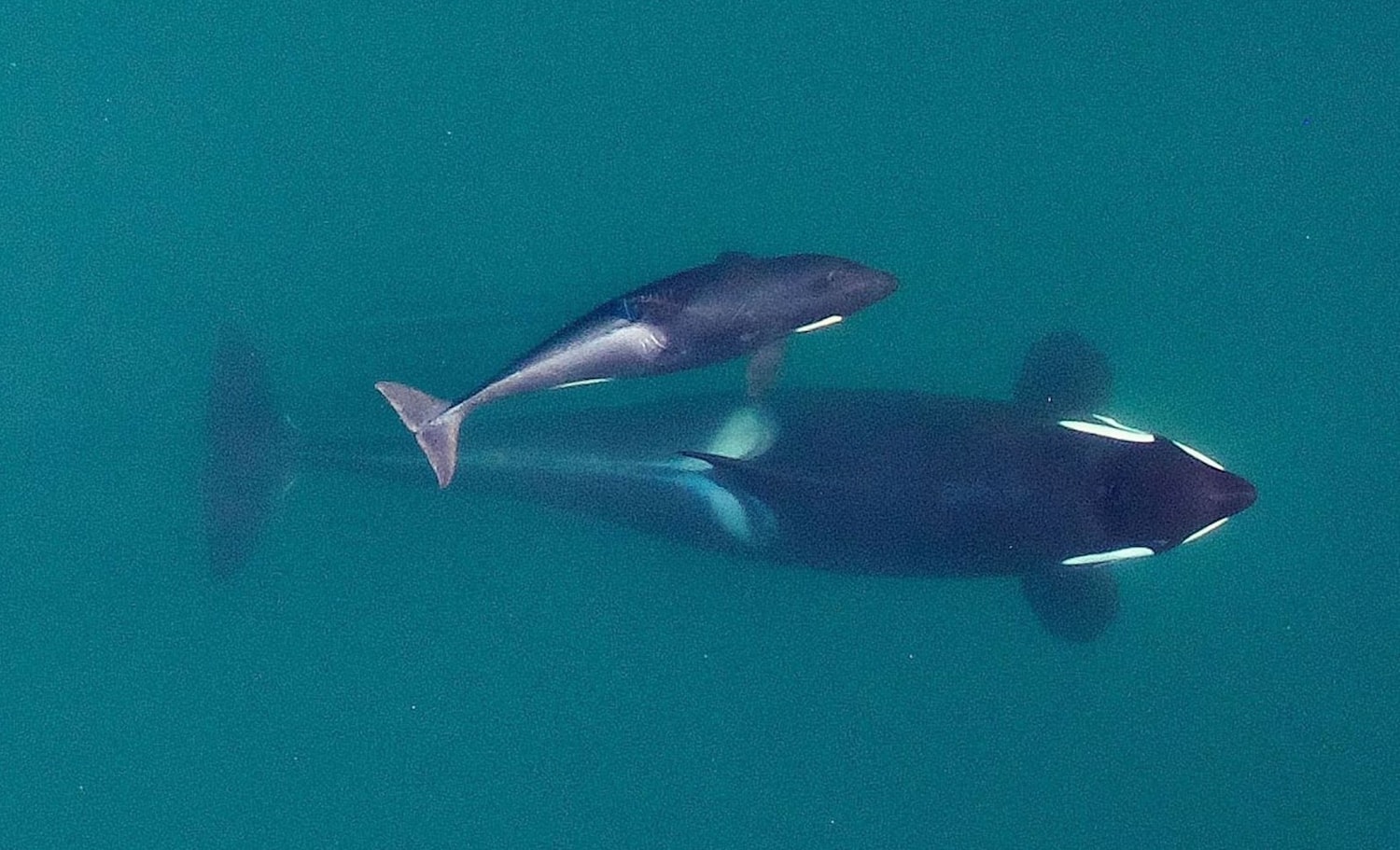
Southern Resident Population Drops to 74 as Trump Administration Ignores Role of Salmon Fishing
SEATTLE— The Center for Biological Diversity and Wild Fish Conservancy today notified the Trump administration that its mismanagement of West Coast salmon fisheries is harming critically endangered Southern Resident killer whales, in violation of the Endangered Species Act. That orca population has dropped to just 74 individuals, mostly because declining salmon runs have left them without enough to eat.
The notice letter gives the administration 60 days to consult with wildlife officials to assess and mitigate the impact Pacific Ocean salmon fishing has on endangered orcas before the groups consider filing a lawsuit. The letter follows Washington Gov. Jay Inslee’s proposal last week for a $1.1 billion program to protect these orcas and restore salmon runs.
“These orcas will go extinct if federal officials don’t ensure there’s enough wild salmon available to eat,” said Julie Teel Simmonds, an attorney with the Center. “We can’t allow business as usual in the salmon fisheries while Southern Resident killer whales are starving to death. We have to move fast because time is running out.”
The population of Southern Resident killer whales reached a 34-year low this year after the loss of a newborn calf and a young female orca. None of the calves born in the past three years has survived, adding a sense of urgency to improve recovery efforts. In addition to lack of prey availability, the orcas are harmed by boat traffic and noise, which disrupts their feeding and communications, and water pollution.
In August the Center sued the Trump administration for failing to protect the Southern Residents’ full West Coast habitat. The Center launched another lawsuit in August to establish a “whale protection zone” to shield orcas from boat noise and disturbance in the heart of their Puget Sound habitat.
“There’s growing evidence that Chinook size and abundance are closely related to the survival and reproductive success of Southern Resident killer whales. Yet federal fishery managers responsible for protecting this endangered population have ignored data showing how ocean harvest management contributes to the decline of both Chinook salmon and Southern Resident killer whales,” said Kurt Beardslee, executive director of the Wild Fish Conservancy.
Today’s notice letter spells out the administration’s obligation to update its salmon fishery management policies to comply with the Endangered Species Act. It calls on the National Marine Fisheries Service to update its outdated biological assessment of Southern Residents.
“Good fishery management starts with good science, and that’s what we’re asking for,” Simmonds said. “Saving West Coast orcas requires taking bold action immediately to reverse their troubling and drastic decline.”
The Center for Biological Diversity is a national, nonprofit conservation organization with more than 1 million members and online activists dedicated to the protection of endangered species and wild places.
The Wild Fish Conservancy (WFC) is a nonprofit conservation ecology organization headquartered in Washington State dedicated to preserving, protecting and restoring the northwest’s wild fish and the ecosystems they depend on, through science, education and advocacy.
###
Further Reading: Emergency measures on both sides of the border required to save Southern Resident killer whales (Wild Fish Conservancy and Raincoast Conservation Foundation)
The Wild Fish Conservancy (WFC) is a nonprofit conservation ecology organization headquartered in Washington State dedicated to preserving, protecting and restoring the Northwest’s wild fish and the ecosystems they depend on, through science, education and advocacy.
The Center for Biological Diversity is a national, nonprofit conservation organization with more than 1 million members and online activists dedicated to the protection of endangered species and wild places.
Contacts:
Julie Teel Simmonds
Center for Biological Diversity
(619) 990-2999 | [email protected]
www.biologicaldiversity.org
Kurt Beardslee
Wild Fish Conservancy
(425) 788-1167 | [email protected]
www.wildfishconservancy.org